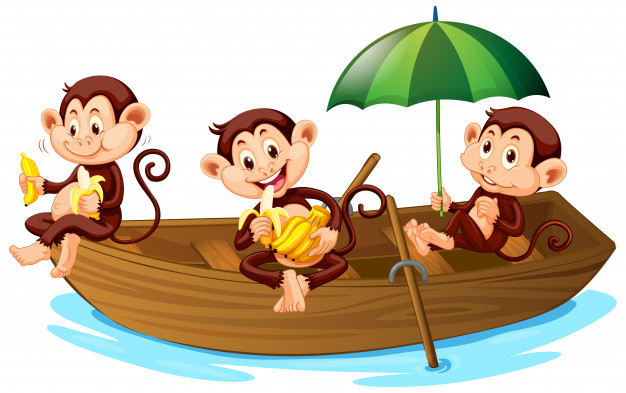Have you ever heard about monkeys in a cage experiment?
Many people behave like those monkey’s killing your morale and dreams unknowingly, thinking that they are helping you when they are helping themselves. To win, you must decide who to listen to.
What was the monkey experiment about?
Around 1967, a group of scientists put five monkeys in a specially built tall cage. High up in one corner of the cage, a bunch of bananas were placed in such a way monkeys could see but could not reach it. A ladder was placed against the case such that a monkey that climbed it could reach the bananas.
They say, “no one leaves a monkey with a banana”. They are right. Immediately, the monkeys saw the bananas. One monkey tried to jump. It could not reach. It then started climbing the ladder. High up near the bananas, the scientists doing the experiment sprayed it monkey with ice-cold water and then proceeded to spray each of the other monkeys in the cage. Overwhelmed, the money on the ladder falls. All the five monkeys in the cage sit for a while on the floor – wet, very cold, and afraid. But food is a great motivator. Soon, another monkey starts to climb the ladder. Again, that monkey is sprayed with cold water, and then all the other monkeys in the cage are sprayed.
When a third monkey tries to climb the ladder, the other four monkeys, wanting to avoid the ice-cold spray, pulls him off the ladder and beat him.
Now it gets interesting.
One of the five monkeys is removed, and a new monkey is introduced to the cage. Soon, the new monkey spots the bananas, and naively begins to climb the ladder. The other monkeys pull him off and beat him.
Again, a second monkey is removed from the group of the original monkeys and replaced with a new monkey. Again, the new monkey begins to climb the ladder and, alas, the other monkeys in the cage pull him off and beat him – including the monkey that had never been sprayed with the ice-cold water.
By the end of the experiment, none of the original monkeys is left and yet, despite none of them ever experiencing the ice-cold water spray, they had all learned never to try and go for the bananas. Interestingly, none of these new monkeys knew why not to climb to get the banana.
I am sure you have probably come across this story somewhere on the Internet. If not yet, here is the video
and watch the YouTube video of five monkeys. Others say this experiment never took place; others say it did. Either way, it is a metaphor full of life and business lessons.
What lessons do you learn from the above experiment?
Every day, staff are challenged to be innovative, always coming up with new and novel ideas only for cold water to be poured on their ideas wherever something new is tried.
As if that is not enough, the other employees suppress the new ideas, by sitting on them thereby creating a toxic culture of keeping the heads down and learned helplessness.
As a strategy execution consultant, I have learned that it does not matter the quality of one’s strategic plan document. It is the company’s culture that makes execution excellency.
“Pouring cold water” on people hurts their confidence, career success, and motivation. People must be allowed to take risks. They should be rewarded when they take risks and win. And rewarded when they take risks and fail.
Pouring cold water on the monkey that is climbing on the ladder is good to teach the monkey a lesson that you have got to work for something you need. No one achieves anything of value without first going through challenges. That cold water on the ladder is a fair risk to take, especially if the monkey hangs on and finally reaches the bananas.
It is not good for the person making the experiment to pour cold water to the monkey that failed to climb, and all the other monkeys in the cage, as such leads to a culture of fear to take risks since you lose twice – whether you take the risk or not, you get punished for one’s explorations.
That is a bad and destructive culture to develop.
I usually tell the story of this experiment to my clients during the first session of communicating a strategic plan for ownership, before we begin making work plans or a business plan to put the strategy into action. Rewarding both risk-taking wins and misses empowers staff across the organization to take calculated risks which is critical for innovation and progress. And this is the right culture to build.
Are you pouring cold water on your staff or you are showing them the bananas and encouraging them to go for them alone or as a team, and celebrating each success and learning from the failure?
Watch the video
https://www.youtube.com/watch?v=y-PvBo75PDo
Copyright Mustapha B Mugisa, 2020. All rights reserved.









